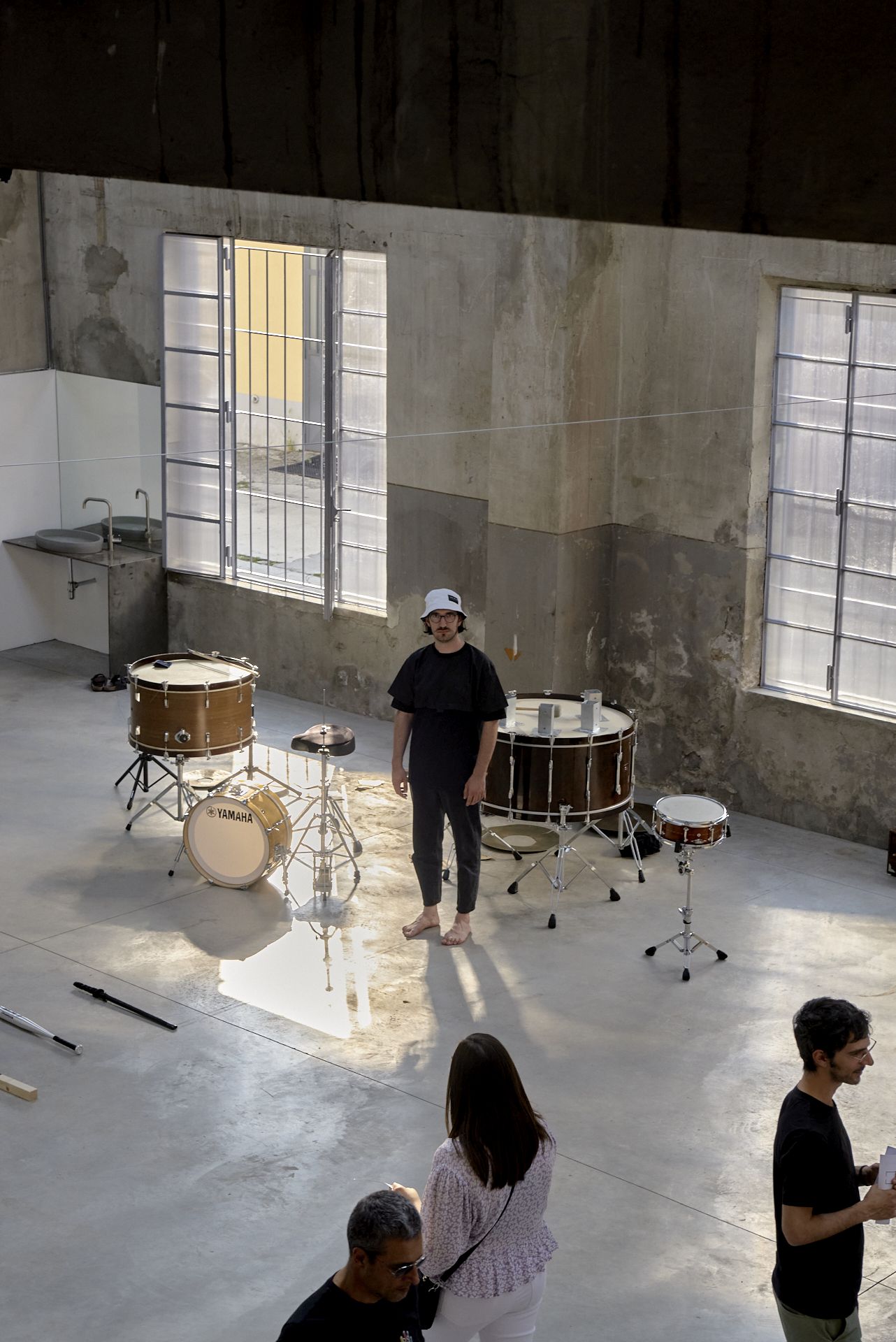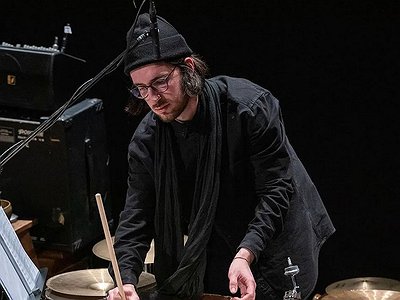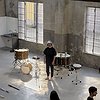Name: Nicholas Remondino
Occupation: Percussionist, sound artist, improviser, composer
Nationality: Italian
Current release: Nicholas Remondino's Ocra Rossa is out via Shhpuma.
If you enjoyed this Nicholas Remondino interview and would like to know more about his work, visit him on Instagram.
Over the course of his career, Nicholas Remondino has worked with a wide range of artists, including Theo Bleckmann, and Massimo Silverio.
[Read our Theo Bleckmann interview]
[Read our Massimo Silverio interview]
What was your first drum set like and what are you using today? What, to you personally, are factors in terms of build and design that you appreciate in drums and percussion instruments?
My first drum set was the bed I was sleeping on when I was 3 years old. I used to beat on it either with drumsticks or with my bare hands, playing on records.
My father was a musician, so it wasn't hard to find music around the house. There were different musical instruments in the house, but I’ve always had a curiosity about how to create unusual sets. For years, even though I already had my first real drum set, I was playing whole albums on my thighs for hours on end.
Even on the record OCRA ROSSA I tried to include body sounds, like clapping.
Late Rush-drummer Neil Peart said: “The equipment is not an influence. It doesn't affect the way I play. It's an expression of the way I play.” What's your take on that?
I tend to hate tom drums (Neil would disagree with me).
For me it’s very important to choose the materials I surround myself with when I play, whether they are drumsticks, percussions, objects, textile pieces or branches.
Lately I find satisfaction in working with wood, stones and metal objects, and the prepared bass-drum helps me make them resonate. Working on minimal sets has helped me to discover the nuances of drums and their mechanics in great detail. As a result, I discovered a new sensibility on the traditional set as well.
What were some of the main challenges in your development as a drummer / percussionist? Which practices, exercises, or experiences were most helpful in reaching your goals?
Improvisation, timbral research, the imitation of electronic sounds through acoustic gestures have been important stages in my relationship with the instrument. Over the years I’ve always felt a growing spiritual call regarding sound, almost as a light invoking life.
Nowadays I let myself follow this call completely, through an immersive sound that embraces me and the listener as much as possible.
What do you think you're doing different than other drummers?
I don't like to define myself, I don't think I consider myself a drummer. Percussions were and still are my first instrument and they’ve always been something instinctive for me.
But in the same way I find pleasure in playing and researching on other instruments: synthesizers, voice, piano, also recording and mixing my own records (with my other project LAMIEE.).
Working freely, following my intuitions as much as possible has helped me create what I want to play, listen to and experience.
OCRA ROSSA for me is a precious snapshot: me in my thirties playing drums, a record of non-music, something I have no interest in defining.
How do you experience the concepts of "groove," "swing," and "rhythmic feel" in music?
I think the track “with” answers the question better than any written response could do.
What is the relationship between harmony, rhythm and melody? How do non-percussion instruments contribute to the overall rhythmic texture of a piece?
Often, when I’m in the studio, I prefer to create a mood before the actual groove: a soundscape of non-percussive and textural sounds, which I discovered to be a driving force in pushing my performance to a different depth.
Textures can help so much frequency-wise and, when mixed with other timbres, they can create more cohesion between instruments and become thematic and melodic elements of a track, even if out of conventional pitch.
Like the use of metals on the track “voluntary”.
Different drums have a distinct sound and drums and percussion are also timbral instruments. What drum sound are you aiming for and how are you making use of the timbral potentials and possibilities of your instruments?
For years I refused and struggled with the usual sound of the drums, which led me to look for more and more different timbrical solutions, working a lot on prepared bass drum. I remember listening to a lot of contemporary classical music during those years and being very inspired by it.
At the same time, I was using the drum set almost as an electronic instrument. To this regard, Bjork's records were my drum teachers.
In relation to drumming, Stewart Copeland said: “Listening is where the cool stuff comes from. And that listening thing, magically, turns all of your chops into gold.” What do you listen for?
I don't know why, but drummers' quotes always make me smile (I say this with respect).
I believe I want to feel deeply, connect with people, feel the vibration that sound causes and be guided by that, in my body and in my spirit.
Nicholas Remondino Interview Image by Matteo Bellomo
Physical strain is a particularly serious issue for many drummers. How does it manifest itself, how do you deal with it and in how far does it affect your creativity?
I think it depends on the repertoire you play and how you deal with it, how much physical stress you accumulate.
I spent time studying how to refine a low-tension gesture, without dispersing too much energy, but I always want to fully experience the physicality of the performance, seeking new stimuli in every sound gesture.
Many recording engineers have remarked that the drums can be particularly hard to capture. What, from your perspective, makes drums sound great on record and in a live setting?
Ideas.
Drums and percussion are remarkably often used for physical therapy / healing. What, from your point of view, makes them particularly suitable tools for this?
It’s that same vibration I was talking about earlier: a physical, ancient and primitive sound that resonates deeply with our bodies.
I think the track ‘every’ has a bit of that shamanic sound.





